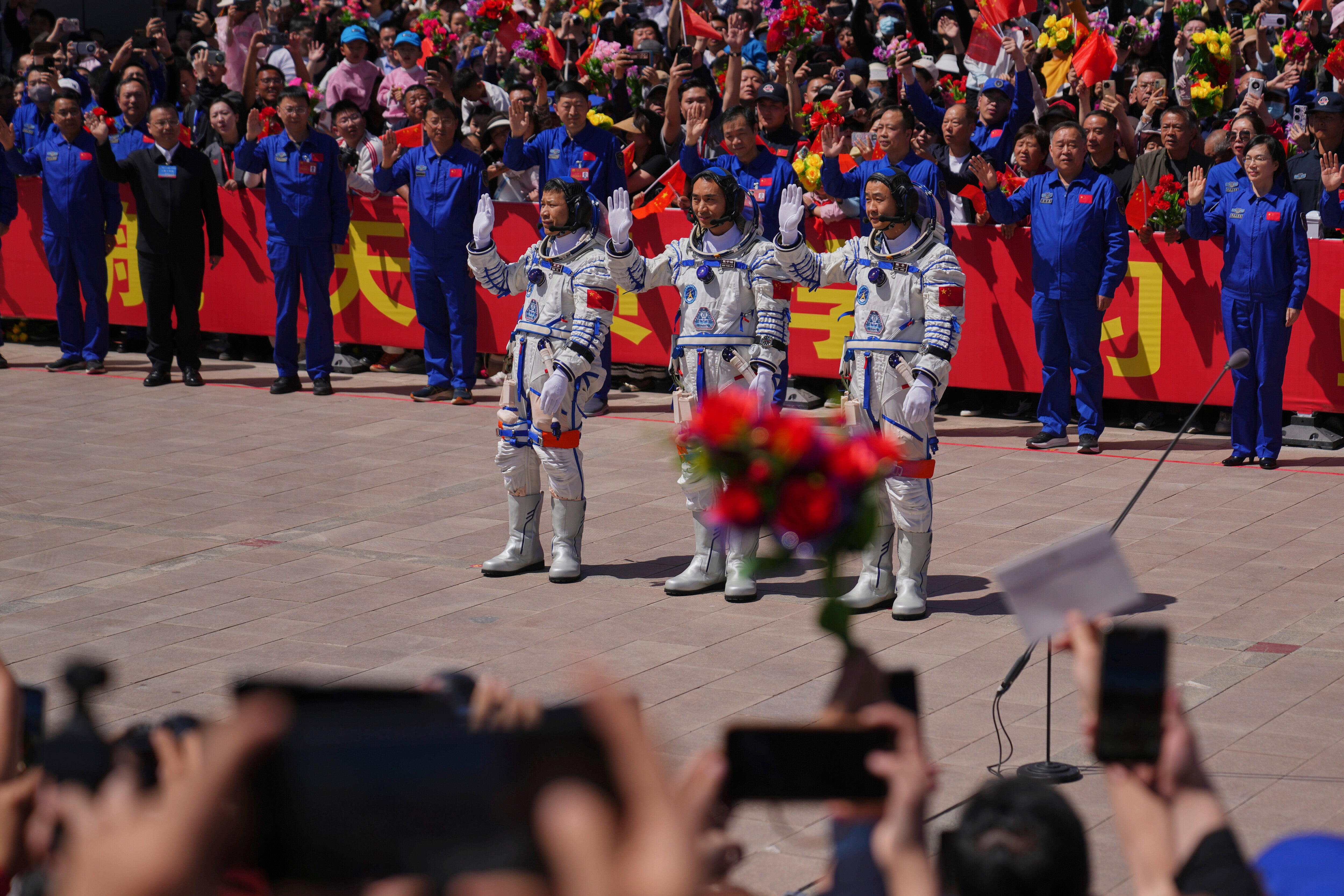
China has successfully launched three astronauts to its Tiangong space station, marking another step towards a crewed mission to the Moon by 2030.
The Shenzhou-20 spacecraft lifted off atop a Long March-2F rocket from the Jiuquan Satellite Launch Centre in the Gobi Desert on Thursday at 5.17 pm local time (10.17am BST).
It is the 15th crewed spaceflight and the 20th overall in the Shenzhou program that started over three decades ago.
The Tiangong, or "Heavenly Palace," space station has made China a major contender in space, especially since it was entirely Chinese-built after the country was excluded from the International Space Station over US national security concerns.
China's space program is controlled by the People's Liberation Army, the military branch of the ruling Communist Party.

The addition of mechanical arms to the three-module station has also raised concerns from some that China could use them to disable satellites or other space vehicles during a crisis.
Since first launching a man into space in 2003 – becoming only the third country to do so behind the US and Russia – China's space program has advanced at a steady pace.
The space agency has also landed an explorer on Mars and a rover on the less-explored far side of the Moon, and aims to put a person on the Moon before 2030.
The Shenzhou, or "Celestial Vessel," 20 mission is commanded by Chen Dong, who is making his third flight.
He is accompanied by fighter pilot Chen Zhongrui and engineer Wang Jie, both making their maiden voyages, according to the China Manned Space Agency.
They will replace three astronauts currently on the Chinese space station. Like those before them, they will stay on board for roughly six months.
The space ship is due to reach the Tiangong about 6.5 hours after the launch. The three-person crew was sent in October last year and they have been in space for 175 days.
They are due to return on 29 April after a brief overlap with their replacements. The Tiangong, fully assembled in October 2022, can accommodate up to six people at a time.
While in space, the astronauts will conduct experiments in medical science and new technologies and perform space walks to carry out maintenance and install new equipment, the Manned Space Agency said.
Chinese authorities said Thursday’s launch had been a “complete success” and that the crew was in “good condition” as they make their way to the space station.
Additional reporting from agencies.







